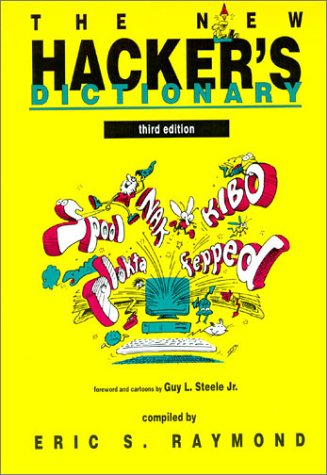
The New Hacker's Dictionary (The Jargon File)
by Eric S. Raymond
Publisher: The MIT Press
ISBN/ASIN: 0262680920
ISBN-13: 9780262680929
Number of pages: 547
Description:
This document is a collection of slang terms used by various subcultures of computer hackers. Though some technical material is included for background and flavor, it is not a technical dictionary; what we describe here is the language hackers use among themselves for fun, social communication, and technical debate.
Download or read it online for free here:
Read online
(online html)
Similar books
 The Web as History
The Web as Historyby Niels Brügger, Ralph Schroeder (eds) - UCL Press
This volume argues that now is the time to question what we have learnt from the Web so far. The authors explore this topic from a number of interdisciplinary angles, as well as an introduction that provides an overview of this new area of research.
(4646 views)
 In the Beginning was the Command Line
In the Beginning was the Command Lineby Neal Stephenson - Harper Perennial
This is a thoughtful, irreverent, hilarious treatise on the cyber-culture past and present; on operating system tyrannies and downloaded popular revolutions; on the Internet, Disney World, Big Bangs, not to mention the meaning of life itself.
(15226 views)
 The Silicon Jungle
The Silicon Jungleby David H. Rothman - Ballantine Books
Americans are fighting each other not just in the marketplace but also in the Silicon Jungle. The jungle is not greenery. It is not land. It is nothing more than the mineral in tiny computer chips that switch electronic impulses ...
(5738 views)
 A Companion to Digital Humanities
A Companion to Digital Humanitiesby Susan Schreibman, Ray Siemens, John Unsworth - Wiley-Blackwell
A complete yet concise overview of this emerging discipline. The book addresses the central concerns of those interested in the subject. The articles are grouped into topical sections focusing on the experience of particular disciplines.
(11666 views)